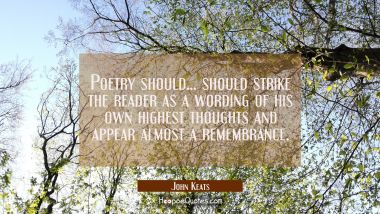
John Keats
John Keats (31 October 1795 – 23 February 1821) was an English Romantic poet. He was one of the main figures of the second generation of Romantic poets, along with Lord Byron and Percy Bysshe Shelley, despite his works having been in publication for only four years before his death.
Enjoy the best John Keats picture quotes.
Read more about John Keats on Wikipedia.











































